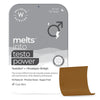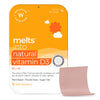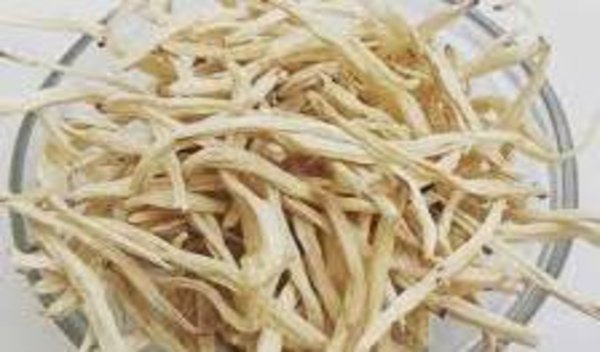If you are considering a testosterone booster to improve your performance and stamina, this blog is for you. Does shilajit increase testosterone? Yes, it does. However, other testosterone and vitality boosters on the market are marketed to give the same results. In this blog, we'll do a comparison of shilajit vs testosterone boosters that'll help you make an informed decision.
What is Shilajit?
Shilajit is a sticky, tar-like substance found in the Himalayas' rocky mountains. Pure Shilajit has been used in traditional Ayurvedic medicine for centuries and is considered a potent and rejuvenating substance.
The composition of Himalayan shilajit is complex and includes a mixture of minerals, fulvic acid, humic acid, and other organic compounds. It is believed to have various health benefits, and in traditional medicine, it is often used as a dietary supplement. Some shilajit benefits include improved vitality, stamina, and testosterone levels.
Shilajit is thought to contain minerals and trace elements that may benefit the body, and its use has been associated with claims of increased energy, improved cognitive function, and anti-aging properties.
What are some other testosterone boosters?
1. D-Aspartic Acid (DAA):
- What it is: D-Aspartic Acid is an amino acid, a building block for specific proteins.
- How it helps: D-Aspartic acid is a natural amino acid found primarily in the pituitary gland and testes. It plays a crucial role in regulating the release and synthesis of luteinizing hormone (LH) and testosterone in humans and rats.
2. Zinc:
- What it is: Zinc is an essential mineral in various physiological processes known for its immunity-boosting properties.
- How it helps: Zinc is a cofactor for enzymes that convert cholesterol into testosterone. It also plays a role in regulating luteinizing hormone, which stimulates testosterone production. Adequate zinc levels are crucial for maintaining healthy testosterone levels.
3. Vitamin D:
- What it is: Vitamin D is a fat-soluble vitamin obtained through sunlight exposure and certain foods.
- How it helps: Vitamin D is associated with healthy testosterone levels. Individuals with vitamin D deficiency may experience lower testosterone levels, and maintaining sufficient vitamin D levels is essential for overall health.
4. Fenugreek:
- What it is: Fenugreek is an herb commonly used in traditional medicine and cooking.
- How it helps: Some studies suggest that fenugreek may positively impact testosterone levels. It is thought to work by inhibiting enzymes that convert testosterone into dihydrotestosterone (DHT), thus helping to maintain higher testosterone levels.
5. Ashwagandha:
- What it is: Ashwagandha is an adaptogenic herb used in traditional Ayurvedic medicine.
- How it helps: Research indicates that ashwagandha may positively affect testosterone levels. It is believed to reduce cortisol levels (a stress hormone), which, when elevated, can negatively impact testosterone production. By managing stress, ashwagandha may indirectly support healthy testosterone levels.
6. Tribulus Terrestris:
- What it is: Tribulus Terrestris is a plant used in traditional medicine, particularly in Ayurveda and Traditional Chinese Medicine.
- How it helps: While traditionally believed to enhance libido and fertility, scientific evidence supporting its effectiveness in boosting testosterone is limited. Some studies suggest that it may have a mild impact on testosterone levels, possibly by increasing the release of luteinizing hormone.
7. Ginger:
- What it is: Ginger is a common spice with various health benefits.
- How it helps: Some studies suggest that ginger may have a positive impact on testosterone levels. It is believed to work by increasing the production of LH and blood flow to sexual organs. Additionally, ginger has antioxidant properties that may support overall reproductive health.
Shilajit Vs. testosterone boosters
When comparing shilajit to other testosterone boosters, it's crucial to understand that the efficacy and safety of these substances can vary, and individual responses may differ. Here are a few points to consider:
- Scientific Evidence: Scientific evidence has studied and proven Shilajit’s role as a testosterone and stamina booster. However, other T boosters, like Tribulus Terrestris, lack evidence. Shilajit is an age-old remedy that has helped several individuals regain their vitality and improve their physical and mental health.
- Individual Variation: People's bodies can react differently to various substances. What works for one person may not work for another, and side effects can vary.
- Potential Risks: Some testosterone boosters or supplements may have potential risks or side effects. Being aware of these and making informed decisions based on your health needs is crucial. For example, too much zinc can cause stomach aches, nausea, and vomiting. Purified shilajit is considered safe and has no side effects when consumed according to the recommended dosage. However, if you have sickle cell anemia, hemochromatosis (excess iron in the blood), or thalassemia, you shouldn't take shilajit. This supplement may trigger allergies in certain people. If you have a rash, an elevated heart rate, or nausea, stop taking Shilajit.
- Source: If your low testosterone levels are because of stress, shilajit and ashwagandha are a combo that can do wonders for you. If you don’t want to have them separately, you can also have a supplement. The best part is that these ingredients are 100% natural and less likely to cause side effects.
Wrapping Up
The debate about shilajit vs testosterone boosters ends with the conclusion that it depends on your unique needs. One thing that we do want you to take away from this blog is that just having Shilajit supplements won't help. Instead of relying solely on supplements, consider a holistic approach to promote overall health. This includes maintaining a balanced diet, engaging in regular physical activity, managing stress, and getting adequate sleep.
Before taking any supplements, including testosterone boosters or shilajit, it's essential to consult with a healthcare professional. They can assess your individual health status, consider potential interactions with medications or existing conditions, and provide personalized advice.






























